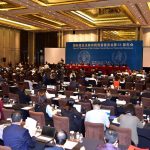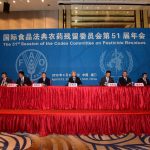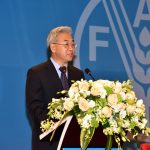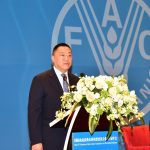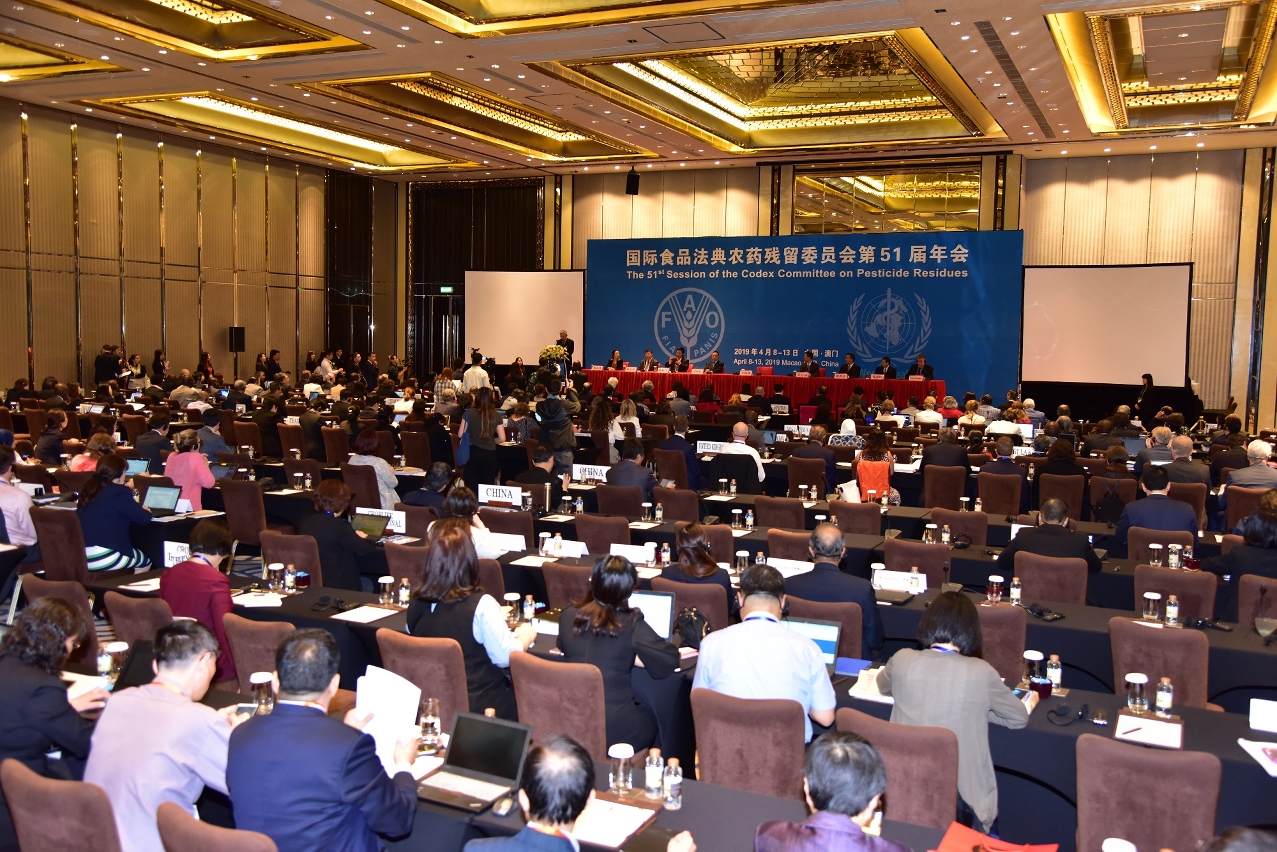 The 51st Session of Codex Committee on Pesticide Residues is held in Macao
The 51st Session of Codex Committee on Pesticide Residues is held in Macao
The 51st Session of Codex Committee on Pesticide Residues (CCPR) is held in Macao from April 8 to 13. More than 300 representatives of 49 member countries, 1 member organisation (European Union) and 12 international organisations participate in the session this year. A total of 17 issues and over 360 drafts of maximum residue limits of 33 pesticides in animal and plant products will be reviewed.
Organised by the Ministry of Agriculture and Rural Affairs of the People’s Republic of China, undertaken by the Institute for the Control of Agrochemicals of Ministry of Agriculture and Rural Affairs of the People’s Republic of China and co-organised by the Municipal Affairs Bureau (IAM) of the Macao Special Administrative Region, the 51st Session of Codex Committee on Pesticide Residues is held in Macao for 6 consecutive days from April 8 to 13. The opening ceremony of the session was hosted by the Chairman of Codex Committee on Pesticide Residues, Dr Qiao Xiongwu. Vice Minister of Agriculture and Rural Affairs of the People’s Republic of China, Mr Zhang Taolin, and the Secretary for Economy and Finance of Macao Special Administrative Region, Mr Leong Vai Tac, officiated the ceremony. They delivered their speeches at the opening ceremony respectively.
During the sessions of CCPR, participating experts have discussions on the establishment of maximum limits for pesticide residues in specific food items or in groups of food, the establishment of maximum limits for pesticide residues in certain animal feed in international trade, the establishment of methods of sampling and analysis for determination of pesticide residues in food and feed, and issues related to the safety of pesticide residues in food and feed, etc. In the session this year, 17 issues including drafts of maximum residue limits, proposals of revision of the codex classification of food and feed, priority list of pesticides for evaluation, etc., along with over 360 drafts of maximum residue limits involving 33 pesticides, such as avermectin, in animal and plant products will be reviewed. With the support from the Ministry of Agriculture and Rural Affairs of the People’s Republic of China, IAM participates in this year’s session as a member of the delegation of China.
Food safety is currently one of the challenges faced by the whole world. The Codex Alimentarius Committee (CAC), jointly established by the Food and Agriculture Organization of the United Nations and the World Health Organization, is the only intergovernmental organisation that coordinates the food regulations and technical standards among member countries. It is committed to safeguarding the health of consumers in various countries and proactively maintaining the fairness of international food trade, which offers support and exercises important influence on the promotion of food safety management in countries worldwide. China was elected as the host country of CCPR in 2006 and is responsible for organising and convening the relevant sessions, making contributions to safeguarding global consumers’ health and promoting international food safety. This is the 13th session hosted by China.
Food safety involves multiple professional and technical areas. The combined efforts from different parties are required to jointly build a good environment of food safety. The Macao SAR Government attaches great importance to food safety efforts. In addition to reinforcing continuously the supervision of food safety in Macao, it proactively strengthens network construction and technical integration of food safety. It was invited to send representatives to attend the 46th to the 50th sessions of CCPR as members of the delegation of China to grasp the latest global trends in pesticide residue limits, facilitating the establishment of a set of food safety standards that meets international requirements in Macao.


